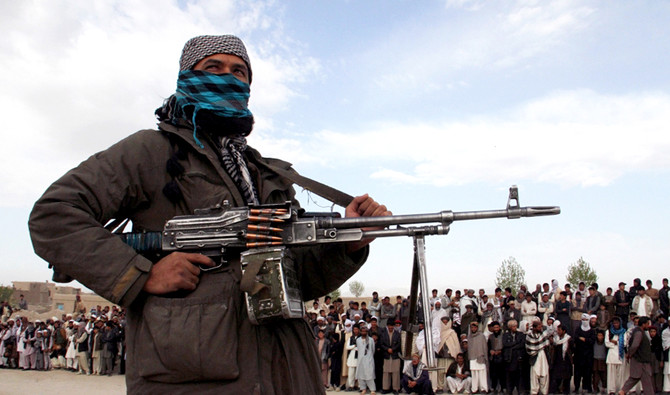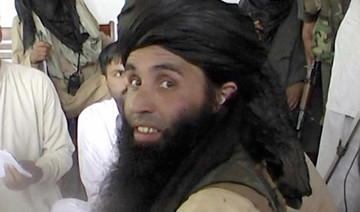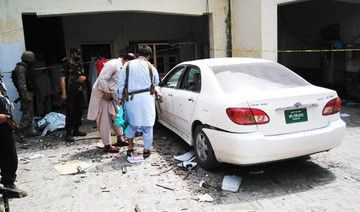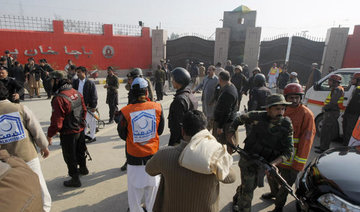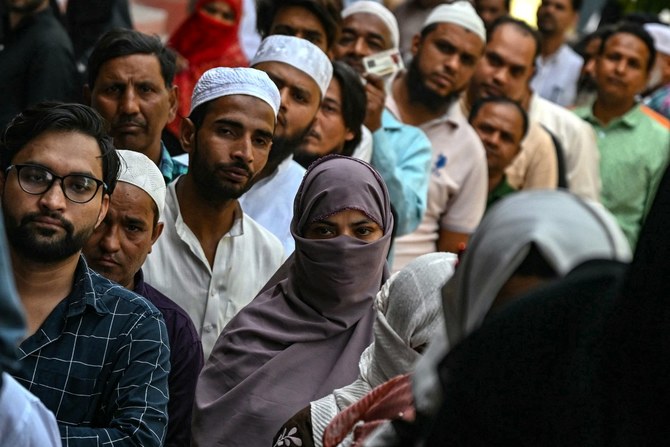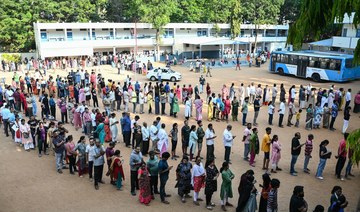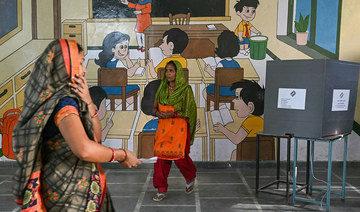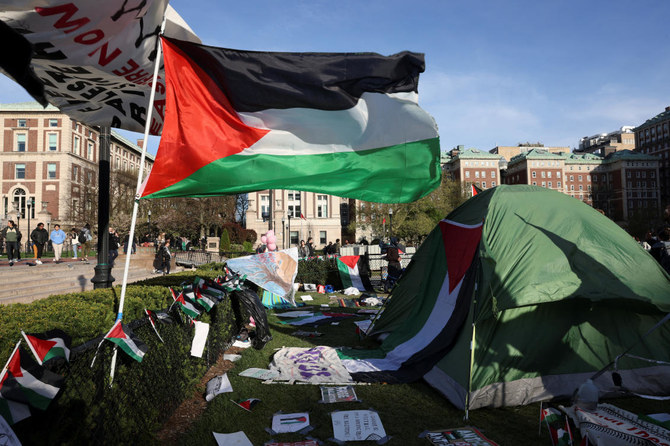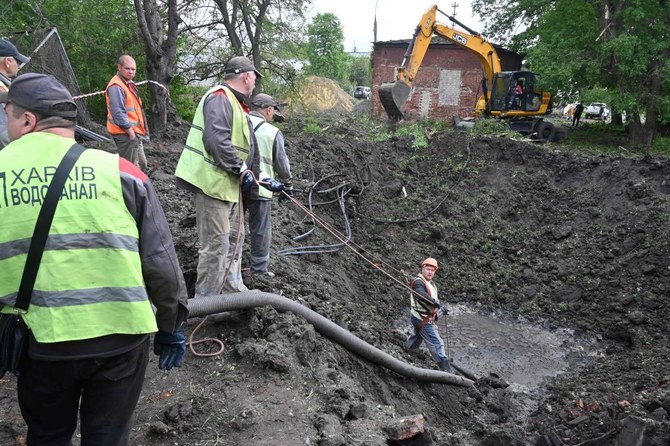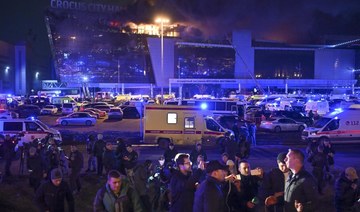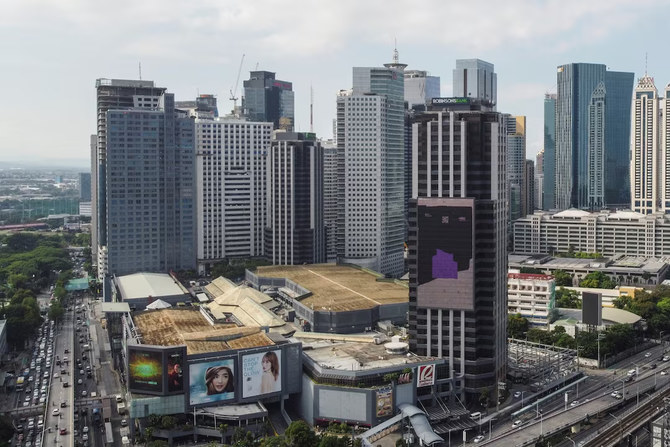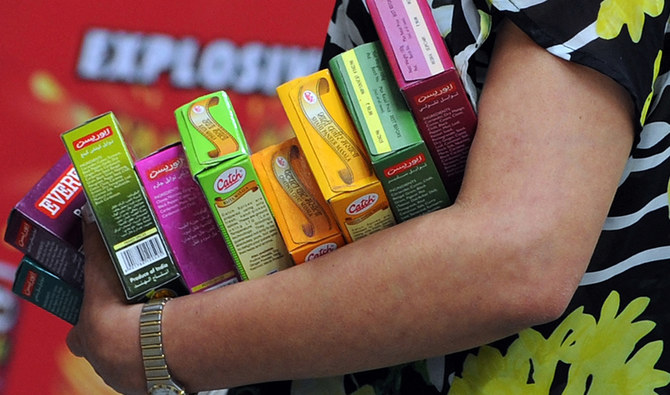KARACHI: Siraj Khan, a Peshawar based exporter, is planning to move to Europe with his family. Khan, a nostalgic resident of the city, is not moving abroad because his business is failing at home. He has made billions of rupees by exporting precious minerals from Pakistan’s tribal areas and Afghanistan to the international market. His exports have also contributed to his country’s economy.
His move is prompted, Khan told Arab News, by a surge in extortion calls from Afghanistan.
When Khan bought property in Peshawar’s Hayatabad Industrial Estate (HIE) in 2013 it brought him under the militants’ radar.
“I got a call and the caller introduced himself as a commander of Mangal Bagh and asked for extortion money,” Khan told Arab News, adding that he paid extortion money not realizing that more and more calls would follow.
“After it became a daily occurrence, I decided to move along with my family to Islamabad,” Khan added, describing how he threw his SIM cards away so that his family could not be reached by militant groups.
When peace began to return to the Peshawar valley and adjacent tribal areas, Khan, who was homesick for Peshawar, decided to move back last December. For four months all was well until a call in March made him realize his error.
“I made a mistake moving back to Peshawar,” said Khan. Although he informed law enforcement agencies, but he was told that nothing could be done because the calls came from the other side of the Durand line – a border between Pakistan and Afghanistan. “I was advised to take care of myself.”
The calls continued. Meanwhile, Fazlullah was hit by US drone on June 14, but the news that Noor Wali Mehsud, who had been instrumental in expanding Taliban extortion network, had been appointed TTP chief made Khan even more worried. Finally he decided to move to Europe. “I can’t get myself and my children killed,” he said.
No clue
Experts see no end to the calls from Afghanistan. “The Government in Kabul is weak and it cannot even trace the extortion calls, which, along with kidnapping, has become key source of income for its own warlords who were previously getting foreign funding,” Lehaz Ali, a Peshawar-based journalist who specializes in security-related issues, explained.
Although the Taliban have been eradicated by Pakistan security forces, they have found local criminals to execute their extortion plans on their behalf.
“Local militants and criminal elements now play an important role in execution of the extortion calls”.
Omar Shahid, a senior counter terrorism officer and author of bestsellers on Karachi’s violence, said Karachi chief of Taliban would be primarily tasked to raise funds, a lion’s share of which would come from extorting Pashtun, especially Mehsud traders and contractors.
“With the Taliban network in Karachi now being dismantled and the calls from Afghanistan can’t be executed by TTP, these may certainly be resulting in mental stress for the victims.”
To have complete control the extortion menace, Shahid suggested, country to country and intelligence agency to intelligence agency cooperation between Pakistan and Afghanistan were needed.
Back to Mehsud
Most of the extortion victims being interviewed by Arab News in Peshawar and Karachi have described being contacted by militants from their own tribes, for instance, a Swati was contacted by a militant from Swat, a Mohmand was called by Mohmand militant, and a Mehsud was phoned by a Mehsud militant for extortion. Thus the appointment of Mehsud as new TTP chief has scared Hajji Mahmudullah, a Mehsud tribal elder, who runs a transport business in Karachi. He said that his insult by Taliban militants still haunts his dreams.
Miserable stories
Mahmudullah’s crime was that he bailed out a community member and left his colleague, a Taliban activist, behind bars. The Taliban, he said, accused him of helping police to arrest a militant and then told him that he could save his life either by brining the militant out of lockup or pay compensation.
After sending Jirga to North Waziristan, Mehsud went to the Taliban’s headquarters. The militants had refused to settle until he visited them. Mahmudullah arrived in Tank and was accompanied by local elders for going to Meeranshah.
“When I entered the room, a commander addressed me and said I would have cut your mustache if you had resisted for one more day,” he recalled. He was made to wait and was insulted in an effort to provoke him, but he controlled his anger.
After an ordeal lasting several days, Mehsud negotiated to pay 2 million rupees and was told he could leave Waziristan once TTP’s man had collected the amount in Karachi.
“It was really humiliating. I will never even think of doing any good to anyone in future.”
Hajji Mahmudullah is not the only one who is haunted by Taliban’s past.
The eight-year old son of Shah Muhammad Khan, a Karachi-based contractor from Malakand agency, escaped kidnapping four years back. Khan said he had to look to his Mehsud partners after the police refused to help.
When he visited Quaidabad police station, Khan was told no FIR against Taliban could be lodged.
“The duty officer, probably, didn’t want to invite the wrath of the Taliban, who had killed two policemen couple of days earlier,” Khan told Arab News. He added that after several months’ negotiation, a settlement was reached that one well-off Mehsud friend of Khan’s would pay 30,000 a month to cover medical treatment for the families of militants.
Local Connections
In most cases the victim has been called by a militant belonging to his tribe.
Muhammad Jamal, a resident of Swat valley, whose brother and son work in the US, was approached for extortion from Kunar, Afghanistan, few months ago. The caller, Jamal said, was a former TTP commander in Swat, who through his local informers had gathered information about him.
Jamal, who lives in Bara Banda, the village of slain TTP chief Mullah Fazlullah, said he is now at ease again as the calls from Afghanistan have come to a halt after the reported death of Fazlullah.
Azmat Khan, a scrap dealer in Karachi and Muhammad Mustaqeem, a trader in Peshawar, said they have paid the Mohmand faction of the Taliban. Both Khan and Mustaqeem belong to Mohmand tribe of Pashtuns.
Ali says businessmen are not the only victims. Several actors and doctors in Peshawar have been targeted and several doctors have been kidnapped in the past, only to secure their freedom after the payment of a hefty ransom.


